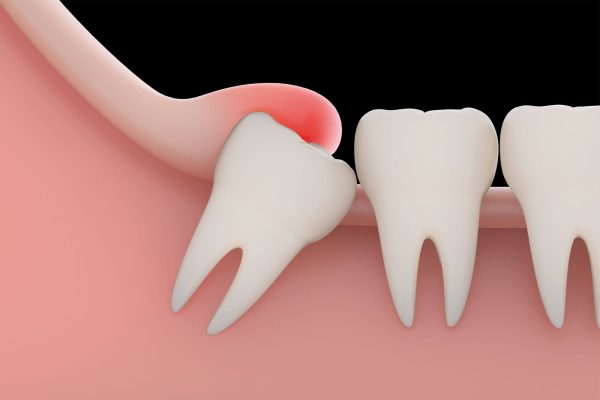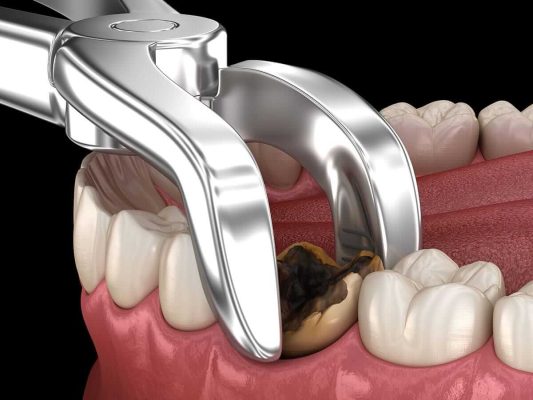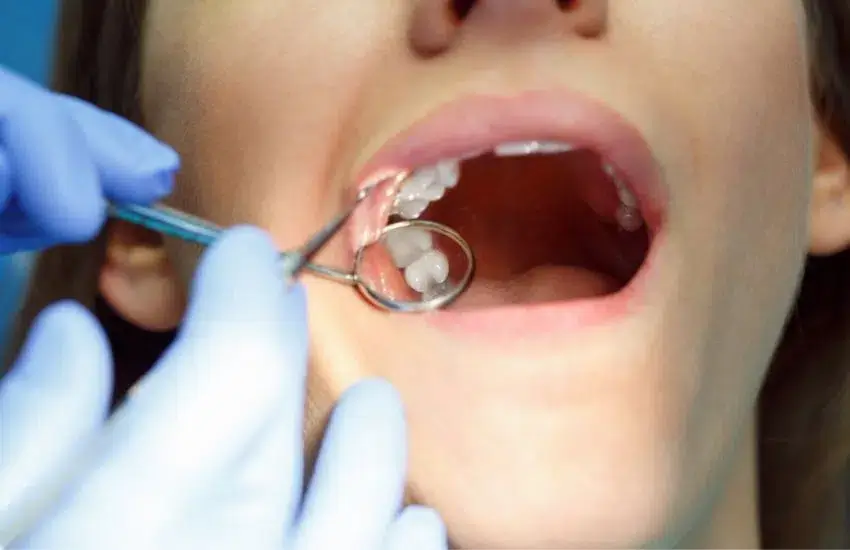How Soon Can You Talk After Wisdom Teeth Removal
Third molars, or wisdom teeth, are the last teeth to form in your mouth. They appear between 17 and 25. Wisdom teeth can cause infection, discomfort, and misalignment. A dentist may suggest removing them.Talk after wisdom teeth removal, it is common to experience swelling and pain, which can make talking challenging.
Table of contents
- Why Are Wisdom Teeth Removed?
- What Happens During Wisdom Teeth Removal?
- Factors that Affect When You Can Talk After Wisdom Teeth Removal
- Youtube Video About Talk After Wisdom Teeth Removal
- When You Can Talk After Wisdom Teeth Removal
- How to Promote Healing and Speed Up the Process
- Common Concerns and Questions About Talking After Wisdom Teeth Removal
- Final Thought
- You May Also Like
- FAQ
Why Are Wisdom Teeth Removed?

Because they can lead to a variety of dental issues, wisdom teeth are frequently extracted. Your wisdom teeth may cause discomfort, swelling, and infection if they are impacted, which means they have not fully emerged from the gum line.
By pressing against them or causing crowding, they can also harm the nearby teeth. Sometimes, wisdom teeth can harm the jawbone by causing cysts or other sorts of injury.
What Happens During Wisdom Teeth Removal?

The method used to remove your wisdom teeth will be based on your unique situation, including how many teeth need to be taken out, where they need to go, and whether or not they are impacted.
The majority of the time, local anesthetic is used to remove wisdom teeth since it numbs the area around the teeth.
General anesthesia may be utilized in some circumstances, especially when several teeth need to be extracted at once.
The dentist or oral surgeon will make an incision in your gums to access the wisdom teeth after giving you the appropriate anesthesia or sedation.
The teeth will then be removed, and the area will be cleaned to stop infection. Stitches may occasionally be required to close the incision.
Factors that Affect When You Can Talk After Wisdom Teeth Removal
Several factors can impact when you can talk after wisdom teeth removal.
Severity of the Extraction
How quickly you can speak following the treatment might depend on how severe the extraction was. The procedure might have been more intrusive if the wisdom teeth were impacted or had issues like twisted roots or being close to nerves.
Speech may take longer to recover from in these situations and return to normal.
Type of Anesthesia Used
Your capacity to speak following the treatment can also depend on the type of anaesthetic utilized. If you underwent general anesthesia, it can take a little longer for the symptoms to subside, and you might have drowsiness and confusion.
If local anaesthetic was used, it might have only affected the region around the extraction site, and you might have been able to speak right away.
Swelling and Pain
Swelling and pain are common after wisdom teeth removal, and they can make talking more challenging. It can cause stiffness in the jaw and difficulty moving the mouth. Pain can make it uncomfortable to open your mouth or speak.
Youtube Video About Talk After Wisdom Teeth Removal
When You Can Talk After Wisdom Teeth Removal

Talk after wisdom teeth removal, it can take a few days for your speech to return to normal. During this time, you may experience some of the following:
- Unsteady speech
- Having trouble pronouncing words and opening your mouth widely enough to speak clearly
- Yet, within a week of the surgery, the majority of people can converse fairly regularly.
- To speed up the process, you can try the following:
- Talk clearly and slowly.
- If you feel worn out or uncomfortable, take breaks.
- Talking for long lengths of time should be avoided.
- Avoid meals that are firm or crunchy since they may irritate the extraction site.
How to Promote Healing and Speed Up the Process
Following post-operative instructions can help promote healing and speed up the recovery process. Here are a few tips:
Rest and Take it Easy

It’s crucial to recover fully and take it easy for a few days after having your wisdom teeth removed. Avoid demanding exercises or activities that could cause your mouth to expand and your blood flow to increase.
Apply Ice Packs

You can lessen swelling and inflammation by placing cold packs close to the extraction site on the outside of your face. To avoid getting ice burn, wrap the ice pack in a towel or piece of clothing.
Take Medication as Prescribed

To relieve pain and swelling, your dentist or oral surgeon may prescribe medication. Use the medication exactly as directed, and refrain from taking any additional painkillers without first talking to your dentist.
Follow a Soft Food Diet

Eating soft foods, such as soups, smoothies, and mashed potatoes, can help prevent irritation and promote healing. Avoid hard, crunchy, or chewy foods that can cause discomfort or damage the extraction site.
Maintain Good Oral Hygiene

Maintaining good oral hygiene is crucial to avoiding infections and accelerating recovery. Brush your teeth and tongue gently, gargle with salt water, and wait to use mouthwash until your dentist gives the all-clear.
Soft Foods to Eat After Wisdom Teeth Removal
| Food | Explanation |
| Soup | Broth-based soups are easy to eat and provide nutrients |
| Smoothies | Blended fruits and veggies are soft and nutritious |
| Mashed potatoes | Soft and easy to eat, potatoes can be seasoned to taste |
| Applesauce | Soft, sweet, and easy to swallow |
| Yogurt | High in protein and easy to eat with a spoon |
| Pudding | Soft and sweet, pudding is a treat that’s easy to eat |
Common Concerns and Questions About Talking After Wisdom Teeth Removal
Here are some common concerns and questions people have about talk after wisdom teeth removal:
How Long Should I Avoid Certain Activities?
You will receive detailed post-operative care instructions from your dentist or oral surgeon.
Sucking on a straw, smoking, or blowing your nose are all things that should generally be avoided since they can put pressure on the extraction site.
Avoiding strenuous exercise or heavy lifting for a few days is also a good idea.
What Should I Do If I Experience Complications?
Although they are uncommon, problems after wisdom tooth removal are possible. See your dentist or oral surgeon right away if you develop heavy bleeding, excruciating pain, or infection-related symptoms like fever or edema.
Can I Talk with Gauze in My Mouth?
After the procedure, your dentist or oral surgeon may place gauze in your mouth to help control bleeding.
While it’s okay to talk with gauze in your mouth, it’s best to remove it before speaking to avoid slurred speech.

Can I Use a Straw to Drink After Wisdom Teeth Removal?
It’s best to avoid using a straw after wisdom teeth removal, as the suction can dislodge the blood clot and delay healing.
Can I Go to Work or School After Wisdom Teeth Removal?
After the treatment, the majority of people may go back to work or school in a few days. But, it’s better to hold off until you’ve fully recovered if your position entails manual labor or heavy lifting.
Are Wisdom Teeth Removal Covered by Medicare
In the United States, Medicare, the health insurance program typically doesn’t provide coverage for procedures such, as removing wisdom teeth. This applies to both care and more complex treatments. However there are some exceptions.
If the removal of wisdom teeth is considered necessary as part of a covered treatment, like jaw related surgery Medicare may cover the associated costs. It’s important for patients to consult with their healthcare providers and carefully review their Medicare plan details to understand what is covered and any out of pocket expenses they may incur.
Are Wisdom Teeth Removal Covered by OHIP
In Canada, the Ontario Health Insurance Plan (OHIP) generally does not include services, such, as removing wisdom teeth at an office. OHIP primarily focuses on hospital care.
However if the removal of wisdom teeth is deemed necessary and takes place in a hospital setting OHIP might cover some or all of the expenses. It’s crucial for patients to consult their healthcare providers regarding the necessity and location of the procedure to determine whether it falls within OHIPs coverage.
Final Thought
Talk after wisdom teeth removal, it’s normal to experience swelling, pain, and difficulty speaking. Nonetheless, most people may resume normal speech within a week with the right care and relaxation.
Contact your dentist or oral surgeon right away if you develop difficulties or have questions regarding your recovery.
You may encourage healing and make the recovery process as painless as possible by adhering to post-operative instructions and relaxing.
You May Also Like
FAQ
Day 3 following wisdom teeth removal is usually the worst since edema and pain peak. Inflammation, the body’s normal response after surgery, takes a few days to peak before subsiding. Taking painkillers and using ice packs to reduce swelling are key post-op suggestions.
After wisdom teeth removal, significant bleeding, extreme pain that is not managed by medicine, fever, and symptoms of infection like pus or foul-smelling discharge are red flags. If you encounter any of these symptoms, see a dentist or oral surgeon immediately.
After wisdom teeth removal, keep your head elevated for 24–48 hours to prevent swelling. After this time, you can resume your normal routine, but avoid bending over or carrying heavy objects, which may increase head blood flow.
Swelling and pain are usually worst in the first few days after wisdom teeth surgery. To reduce discomfort, follow post-operative instructions and take pain medicine as prescribed.
After wisdom teeth removal, you may have considerable bleeding, extreme pain, fever, pus, or foul-smelling discharge. Call your dentist or oral surgeon if you have any of these symptoms. If you have any recovery questions, consult your doctor.





